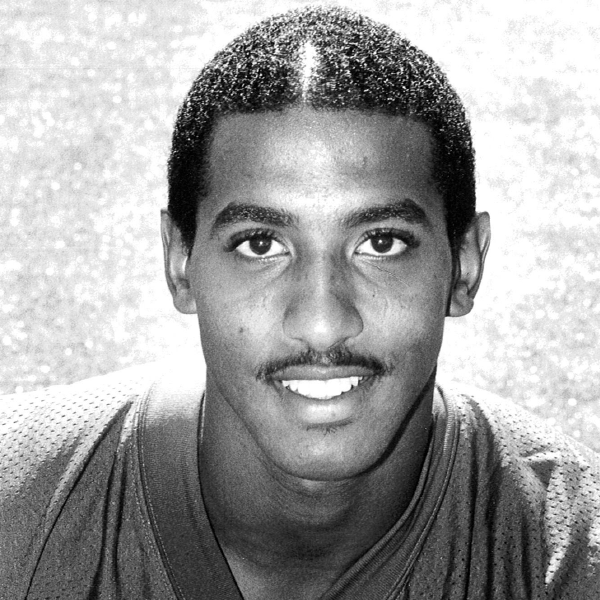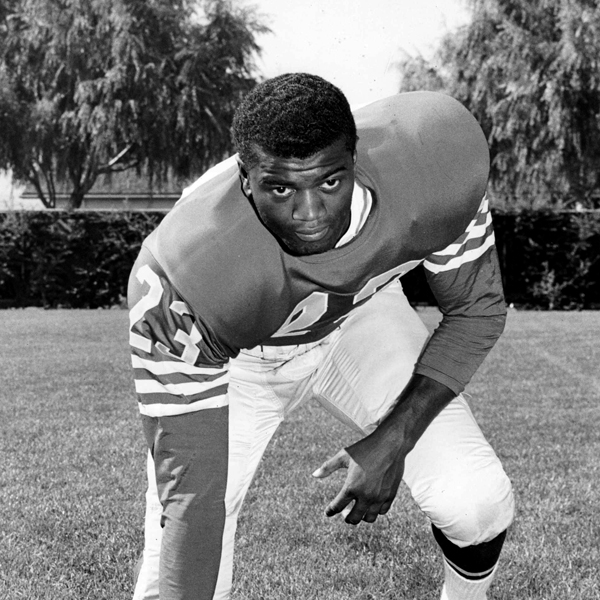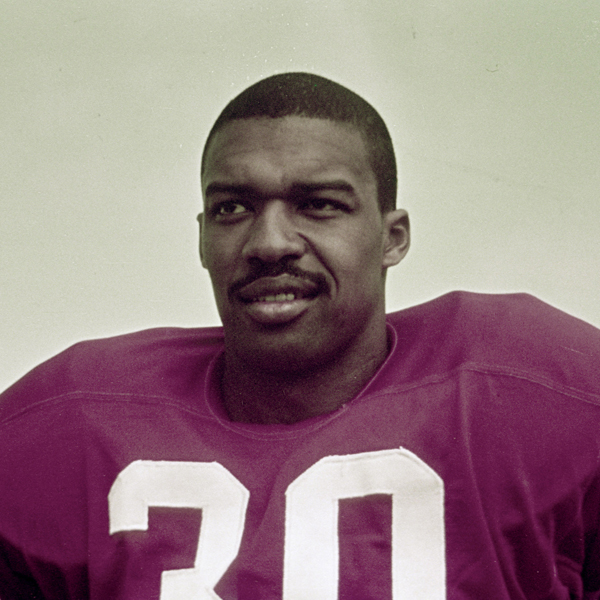Olympic Athletes Earn 49ers Roster Spots
By Joe Hession
49ers Museum Historian
With the Rio 2016 Summer Olympics now upon us, the world is once again reminded that an Olympic gold medal is the ultimate payoff for athletes devoted to their craft. But years of sweaty toil helped several talented Olympic-level athletes parlay their skills into a professional football career, as well. The San Francisco 49ers have been at the forefront of attracting Olympians for over 50 years.
Former 49ers coach and team executive Bill Walsh was enamored with track stars. He believed that an athlete with the ability to sprint, jump, or throw heavy objects long distances had a reasonably good chance to compete in the bruising world of pro football. Hurdlers attracted special attention from Walsh because of their unique skill set: a blend of speed, mobility and high-performance focus. With that idea in mind, Walsh enticed several Olympic-caliber athletes to swap their track shoes for football cleats. Former 49ers defensive lineman Michael Carter, and receivers James Owens and Renaldo Nehemiah, were among his protégés.
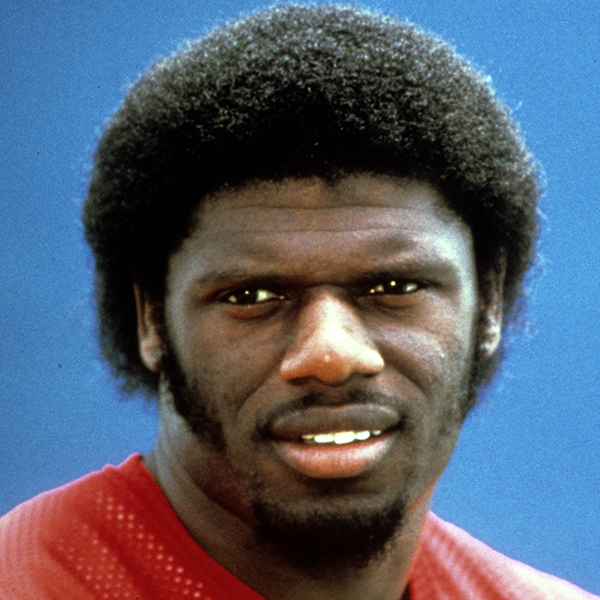
The 49ers used a fifth-round draft choice in 1984 to select Southern Methodist’s Michael Carter and he became the first man to win both an Olympic medal and a Super Bowl ring in the span of one year. As an undergraduate, Carter held four indoor and three outdoor NCAA throwing titles. Carter earned a spot on the 1984 U.S. Olympic team and prior to joining the 49ers, competed in the shot put at the Los Angeles Summer Games where he won the silver medal with a heave of 21.09 meters.
Carter’s combination of explosive power and agility exceeded the expectations of many of his teammates. “Michael Carter is the strongest guy I’ve ever met. No question about it,” former 49ers defensive lineman Dennis Brown said. “And I’ve played against some strong men in this league.”
Six months after appearing on the Olympic victory stand, Carter was on the defensive line at Super Bowl XIX when the 49ers beat the Miami Dolphins 38-16. It was the first of three Super Bowl championship seasons for Carter. He also earned three Pro Bowl berths during his nine years with the 49ers.
In an interesting side note, Carter’s daughter, Michelle, recently earned her third Olympic berth and will compete in the shot put at the 2016 Rio Summer Games. She finished 15th in the shot put at the 2008 Olympics, and fifth in 2012.
In 1979, Walsh’s inaugural season as 49ers head coach, he used his initial draft pick (second round) on James Owens, a hurdler at the 1976 Montreal Olympic Games. Walsh was so smitten with Owens’ speed, he selected the UCLA running back ahead of future Pro Football Hall of Fame quarterback Joe Montana (third round pick). Owens, a Sacramento native who attended Norte del Rio High School, was an NCAA hurdles champ at UCLA. At the 1976 games, Owens seemed to be cruising to an Olympic medal before clipping a hurdle and finishing sixth in the 110-meter event.
Owens made his name with the 49ers as a kick returner. In one of his highlight moments with San Francisco, Owens sprinted 101 yards with a kickoff to score against Detroit in 1980. It was the longest return in the NFL that season. He also earned playing time as a wide receiver and nabbed 19 receptions for 254 yards during his two years with the 49ers.
Renaldo Nehemiah ranked among the fastest men alive in 1982 when Walsh persuaded him to leave the track world and run post patterns for the 49ers. Nicknamed “Skeets,” Nehemiah was the first athlete to run the 110-meter high hurdles in under 13 seconds. Considered the world’s premier hurdler in 1980, Nehemiah was a favorite to win gold at the Moscow Summer Games. His dream was torpedoed, however, when the U.S. boycotted the 1980 games because of the Soviet Union’s invasion of Afghanistan. Nevertheless, Nehemiah quickly transitioned to NFL football and established himself as a deep threat in Walsh’s offensive scheme. During his three seasons with the 49ers, from 1982 to 1984, Nehemiah nabbed 43 passes and averaged 17.5 yards per reception. He earned a Super Bowl ring as a member of the 49ers 1984 championship team.
Long before Walsh saw the potential in Olympic-level athletes, the 49ers pursued some of the world’s fastest men. In the 1960 NFL draft, San Francisco used a fourth-round pick on Ray Norton, world record holder at both 100- and 200-meters, and a finalist in both events at the 1960 Summer Games in Rome. Norton, a graduate of Oakland’s McClymonds High School, was one of a host of Olympic sprinters trained by the legendary Lloyd (Bud) Winter at San Jose State. In 1959, Norton posted a 100-meter time of 10.1 and a 9.3 in the 100-yard dash. He finished sixth in both the 100- and 200-meter finals at the 1960 games. During his two seasons with San Francisco, in 1960 and 1961, he saw action as a running back and kick returner.
Norton was not the only Olympian at the 1960 Summer Games with a connection to the 49ers. Among his U.S. teammates was Rafer Johnson, the brother of 16-year 49ers veteran Jimmy Johnson. Rafer won acclaim as the world’s greatest athlete in 1960 after nabbing a gold medal in the decathlon. He also took the decathlon silver medal at the 1956 Olympic Games in Melbourne and is still remembered as one of America’s premier athletes. At the opening of the 1984 Los Angeles Summer Games, Johnson was selected to light the Olympic flame.
Jimmy Johnson proved to be every bit as athletic as Rafer. A hurdler and 25-foot long jumper at UCLA, Jimmy also advanced to the 1960 Olympic Trials 110-meter qualifying heats before being eliminated. The 49ers selected Johnson, in the first round (sixth overall) of the 1961 NFL draft. He earned a starting role at safety as a rookie and posted five interceptions. Facing a shortage of receivers in 1962, the 49ers moved Johnson to offense and he was the club’s second leading pass catcher with 34 receptions for 627 yards. Johnson returned to the 49ers secondary in 1963 and earned five Pro Bowl berths as a defensive back over the next 14 years. Johnson was enshrined in the Pro Football Hall of Fame in 1994.
Bob Hayes, a gold medalist in the 100-meter dash at the 1964 Tokyo Olympics, was a long-time 49ers nemesis while a receiver with the Dallas Cowboys. But in the twilight of his career he earned a spot on the 49ers roster. Hayes, often considered the fastest man ever to wear an NFL uniform, nabbed just six passes for the 49ers in 1975 but he averaged 19.8 yards per catch. He earned a berth at the Hall of Fame in Canton, Ohio, in 2009.
Several other 49ers stars competed at the Olympic trials and were on the cusp of making the U.S. team. Dynamic defensive back Abe Woodson, one of the NFL’s greatest kick returners, tied a world record in the 50-yard hurdles at the University of Illinois and finished fourth at the 1956 Olympic trials. Although he narrowly missed a spot on the U.S. team, the 49ers selected the All-Big 10 running back in the second round of the 1957 NFL draft. Woodson flashed his speed on special teams returning five kickoffs and two punts for touchdowns during his seven seasons in San Francisco. His 105-yard kickoff return against the Rams in 1959 is still the longest in team history.
Receiver Bernie Casey earned All-America recognition as one of the nation’s top hurdlers at Bowling Green between 1958-1960. At the 110-meter hurdles qualifying finals, Casey competed against future 49ers teammate Jimmy Johnson for a spot on the 1960 Olympic team. Casey placed sixth and was eliminated from Olympic competition by a fraction of a second. San Francisco selected Casey in the first round (ninth overall) of the 1961 NFL draft. During his six seasons with San Francisco he nabbed 277 passes and scored 27 touchdowns.
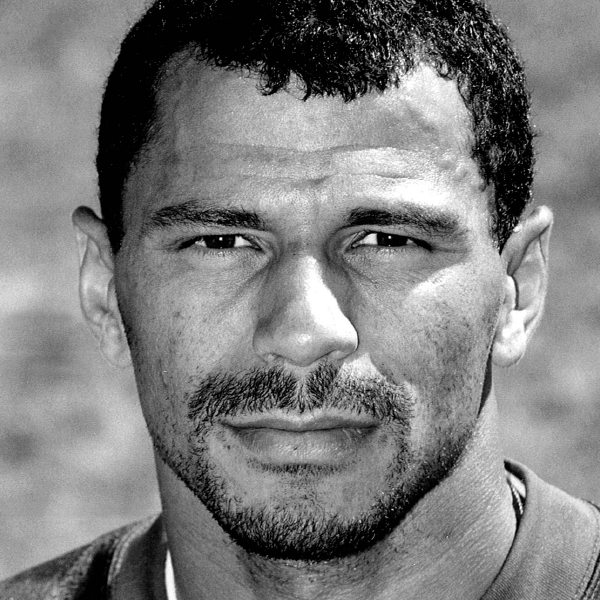
Defensive back Rod Woodson, another Pro Football Hall of Famer, spent one season with the 49ers in 1997. Woodson earned Big 10 championships at Purdue in both the 60- and 110-meter hurdles and qualified for the 1984 Olympic trials in the 110-meter event. He bypassed a shot at an Olympic medal to focus on his budding football career.
While the summer games seems to be the ideal showcase for future NFL stars, former 49ers tight end John Frank made a unique bid for a spot at the Winter Olympics. Frank earned two Super Bowl rings during his five seasons with the 49ers from 1984-1988, then retired from pro football to become a medical doctor. In 2002, he took on a new challenge and helped organize the Israeli Bobsled Federation. In doing so, Frank overcame a host of obstacles. He traveled to Israel to become an Israeli citizen, he petitioned the Israeli Olympic Committee (which had never heard of him or the sport) to recognize the team as a viable competitor, and most importantly, he learned to ride and steer a bobsled. Frank’s dream of an Olympic medal continues. The Israeli Bobsled and Skeleton Team, as it is now known, is still seeking its first Olympic berth.
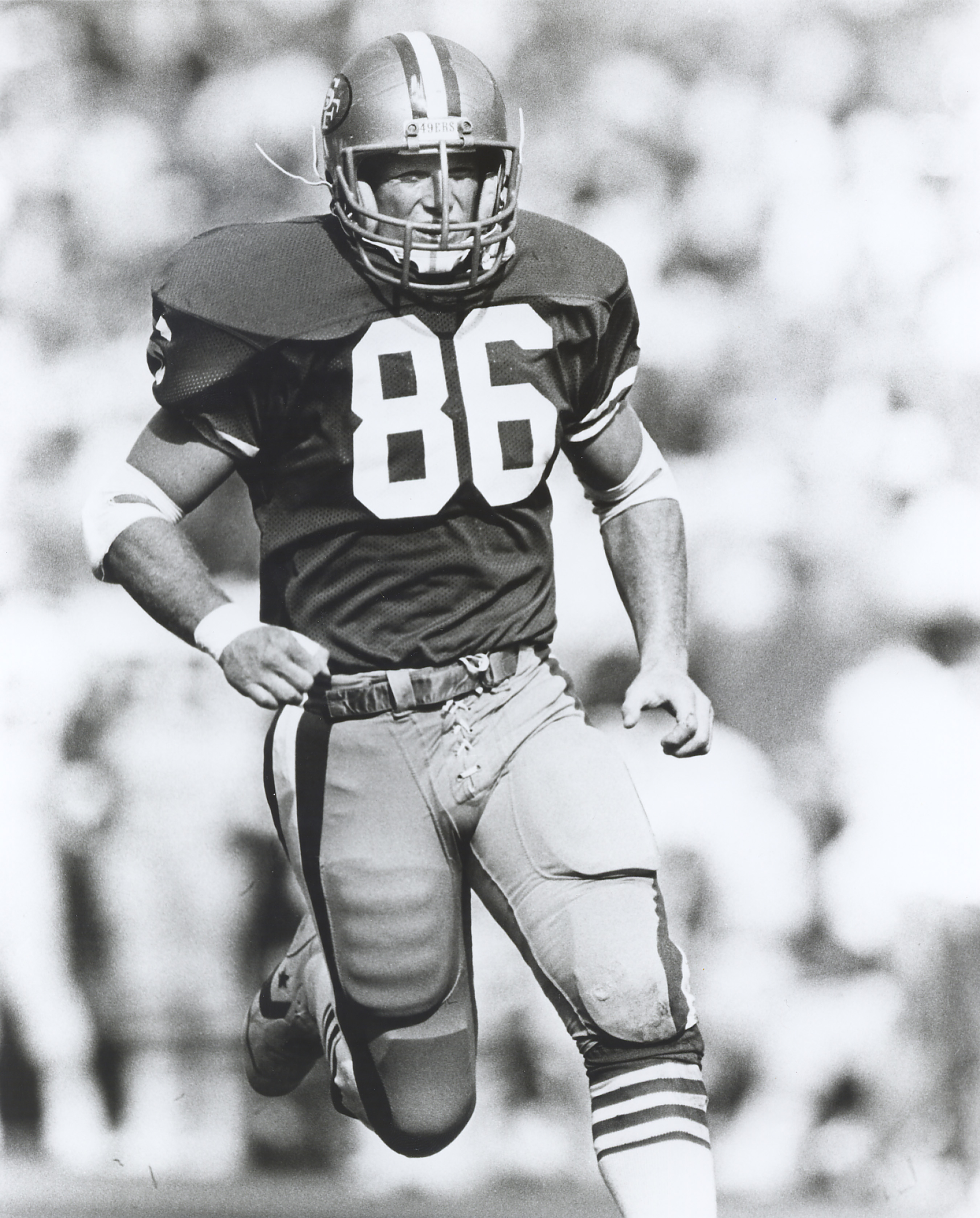
To see artifacts from Michael Carter’s Olympic Games experience, including the silver medal he won in the 1984 Olympic Games in Los Angeles visit the 49ers Museum presented by Sony. Guests also can see Carter’s Super Bowl ring and numerous other items from the 49ers five Super Bowl championships. Or stop by the Hall of Fame gallery to see life-size statues of Jimmy Johnson, Joe Montana, Jerry Rice and their teammates in the 49ers Hall of Fame. For more information on Museum tickets, hours and content, visit levisstadium.com/Museum. For group pricing call 415-GO-49ERS. The team’s Twitter handle is @49ersMuseum

